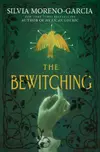
Lee

Rotten Tommy
Added to listOwnedwith 248 books.

Added to listRecommended To Mewith 57 books.

This is what it's be like to raise Franklin Richards of the Fantasic 4. Eleven who?
Nowhere near as good as the overwhelming word of mouth (Cassidy quickly becoming another victim of BookTube/Tok), but still a solid outing from rising horror star Nat Cassidy. He continues to convincingly write from a female perspective, just like with the menopausal Mary and motherhood Nestlings before, successfully crafting a maternal struggle and pride despite being a man himself. I'd place When the Wolf Comes Home in second place decently behind Nestlings, and a little above Reststop and Mary.
A failed actress and a young boy with special powers find themselves on the run from someone…something beyond their wildest dreams. Nature vs nurture, government conspiracy, parenthood, maternal calling, loss of innocence, and the power of imagination. Think Firestarter, but with a mom instead of the dad, and a monstrous lycanthropic entity hunting instead of Rainbird. Now it isn't a 1:1 comparison or copy, but you can there was some strong influence at work.
At the start of the book and for the following ~12 chapters, I found myself debating whether I'd pause and pick this back up another time. Something about it I cannot pin just didn't land for me, perhaps the fact that it wasn't what it appeared to be in marketing making me feel a little letdown. But powering through, by the halfway mark I found myself invested into the two central characters, while also successfully predicting what and how their take would come to a close. Now despite being predictable, the book still flows very well with its pacing between action, suspense, Spielbergian familial dynamics, and full-out graphic body horror (there's a specific death that is dissected and broken down with such detail over a couple pages that it's the literal definition of the internet’s beloved demonetization phrase “un-alived”).
All that said, I still staunchly still believe Cassidy and Stephen Graham Jones are next in line to the Stephen King throne, so far.
This is what it's be like to raise Franklin Richards of the Fantasic 4. Eleven who?
Nowhere near as good as the overwhelming word of mouth (Cassidy quickly becoming another victim of BookTube/Tok), but still a solid outing from rising horror star Nat Cassidy. He continues to convincingly write from a female perspective, just like with the menopausal Mary and motherhood Nestlings before, successfully crafting a maternal struggle and pride despite being a man himself. I'd place When the Wolf Comes Home in second place decently behind Nestlings, and a little above Reststop and Mary.
A failed actress and a young boy with special powers find themselves on the run from someone…something beyond their wildest dreams. Nature vs nurture, government conspiracy, parenthood, maternal calling, loss of innocence, and the power of imagination. Think Firestarter, but with a mom instead of the dad, and a monstrous lycanthropic entity hunting instead of Rainbird. Now it isn't a 1:1 comparison or copy, but you can there was some strong influence at work.
At the start of the book and for the following ~12 chapters, I found myself debating whether I'd pause and pick this back up another time. Something about it I cannot pin just didn't land for me, perhaps the fact that it wasn't what it appeared to be in marketing making me feel a little letdown. But powering through, by the halfway mark I found myself invested into the two central characters, while also successfully predicting what and how their take would come to a close. Now despite being predictable, the book still flows very well with its pacing between action, suspense, Spielbergian familial dynamics, and full-out graphic body horror (there's a specific death that is dissected and broken down with such detail over a couple pages that it's the literal definition of the internet’s beloved demonetization phrase “un-alived”).
All that said, I still staunchly still believe Cassidy and Stephen Graham Jones are next in line to the Stephen King throne, so far.

Going into the belly of the beast on a “rescue” mission Apocalypse Now style, meets Jurassic Park 3. A surprisingly slow start, with the book only really picking up steam around the chapter ~15 mark. Your mileage will vary on how much you like dinosaurs and military lingo, as there's a lot of it to wade through and I can't wholly claim it was worth it in the end. I will say, the closing ~5 chapters definitely delivered the atmosphere and action I was expecting to be in the whole book from the start. I believe the movie adaptation will be better suited to deliver the campy goods.
Going into the belly of the beast on a “rescue” mission Apocalypse Now style, meets Jurassic Park 3. A surprisingly slow start, with the book only really picking up steam around the chapter ~15 mark. Your mileage will vary on how much you like dinosaurs and military lingo, as there's a lot of it to wade through and I can't wholly claim it was worth it in the end. I will say, the closing ~5 chapters definitely delivered the atmosphere and action I was expecting to be in the whole book from the start. I believe the movie adaptation will be better suited to deliver the campy goods.

Mr. Rogers’ neighborhood infected by a Ringu-style curse, resulting in your fave huggable Saturday cartoon creature e.g. Barney, haunting and brutally slaughtering people in the real world. Underneath the torn appendages, crushed spines, and spalltered viscera, there's also a similarity in identity like with I Saw the TV Glow (but not Queer).
Mr. Rogers’ neighborhood infected by a Ringu-style curse, resulting in your fave huggable Saturday cartoon creature e.g. Barney, haunting and brutally slaughtering people in the real world. Underneath the torn appendages, crushed spines, and spalltered viscera, there's also a similarity in identity like with I Saw the TV Glow (but not Queer).

Added to listOwnedwith 242 books.

Added to listBooks Read Before Watching The Film/Showwith 97 books.






































